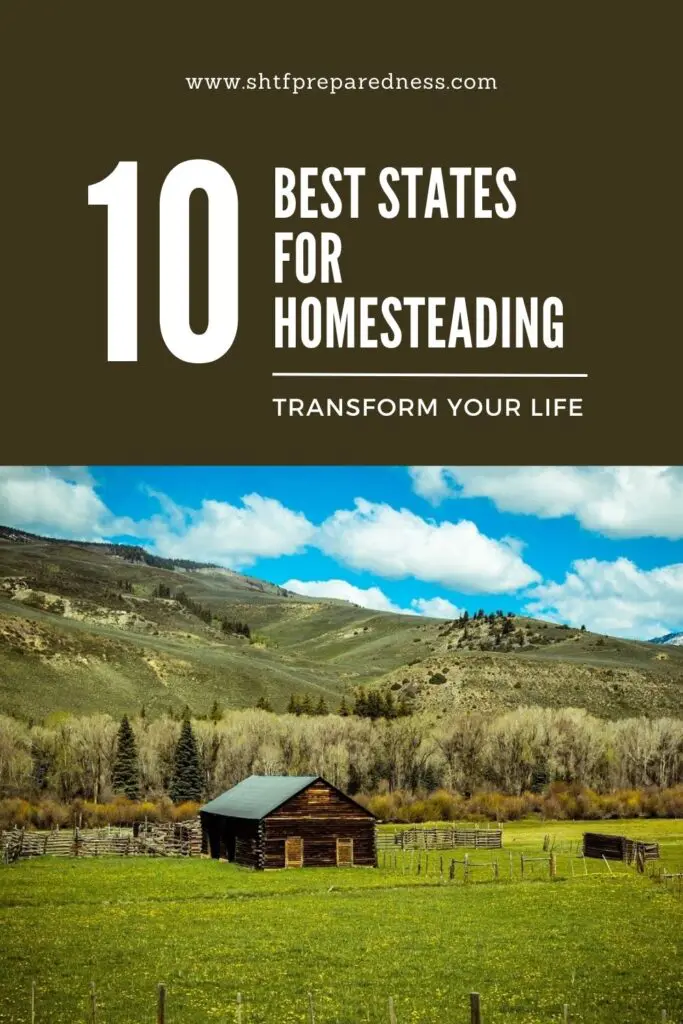If you are considering a significant change in lifestyle, knowing the best states for homesteading can help you decide where to begin your search for your dream homestead.
Many families are making the decision to dramatically change their lifestyle. Particularly after experiencing food shortages and quarantines due to COVID-19.
To many, the idea of growing your own food, raising your own livestock, and educating your children at home is suddenly very appealing. If so, it may be time to seriously consider homesteading.
The original Homesteading Act of 1862 was drawn up to encourage western settlement. If the provisions were met, an individual could claim 160 acres of land for free.
The homesteader had to live on the property for 5 years and make certain improvements in order to obtain a land patent (the equivalent of a deed in modern times).
The idea of homesteading is still appealing today, and many families are now seeking a homesteading life!
Homesteading Basics: Understand Your Options
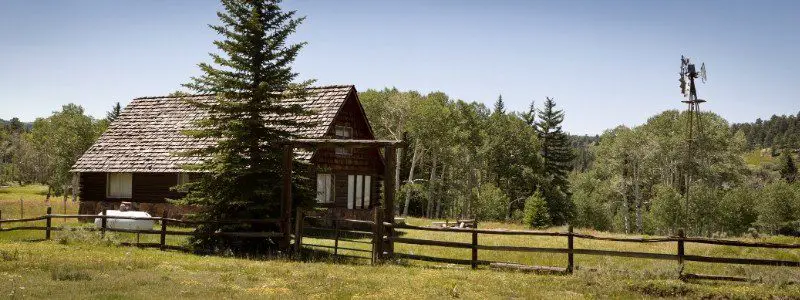
Do All States Allow Homesteading?
Since homesteading is more of a lifestyle choice than a legal construct, you can become a homesteader in any state in the United States. However, homestead laws enable an individual to declare a portion of their property as a “homestead.”
Depending on the state, this makes part of the homestead untouchable as far as creditors are concerned. In many of the best states for homesteading, the state also exempts a portion of the value of the property from property taxes.
Is the Homesteading Act of 1862 Still in Effect?
The Homesteading Act of 1862 officially ended in 1976 for the lower 48 states. Although it continued in effect until 1986 in the state of Alaska.
Can I Get Free Land for Homesteading?
There are a few small towns that offer cheap land (or, in some instances, free land) to individuals who meet the requirements.
These are typically mid-western towns where the population density is dwindling, and encouraging new families to move into the area will benefit the entire community.
Generally, this type of land giveaway involves a commitment from the individual to build a home within a defined number of months. As you research the best states for homesteading, you may also want to search for free land for homesteading.
Factors to Consider
Consider these factors when deliberating on the best states for homesteading:
Land Prices
Before you shop for your homestead property, determine how much acreage you need to achieve your goals.
Homesteads tend to be in the 10-acre range, but if you are planning to be totally self-sufficient, you may need more acres for livestock and gardening.
Tip: As you consider buying land, look at the overall cost of the property. You may find a ‘free’ piece of property in a state with exorbitant property taxes!
Water Access
Part of homesteading involves growing your own food. In considering the best states for homesteading, look for a generous amount of rain for irrigation.
You may also want to include a natural water source in your must-have list. For example, having access to a creek or pond greatly enhances the value of your homestead. Your property will always have water available for your family, crops, and animals.
Mild Climate
Be sure to consider the temperature range, climate, and natural resources of the area you are considering. You will likely need to keep farm animals and grow food crops.
The overall climate of the area within which you choose to homestead will determine the types of crops you can grow and even the livestock that can survive the prevailing weather conditions.
For example, if you are determined to live in a northern state with extremely cold winter weather, you may need to include an underground greenhouse in your homestead planning.
Homeschool Laws
Many homesteaders choose to live in rural locations where the public school options are more limited than if they moved to an urban neighborhood. As you look at possible sites for your homestead, check out the school systems.
If you plan to homeschool your children, make sure the state you are considering has generous homeschooling laws that will not impede your plans for homeschooling.
Some states have overly restrictive laws about homeschooling, whereas other states are more homeschool-friendly.
10 Best States for Homesteading
10. Arkansas
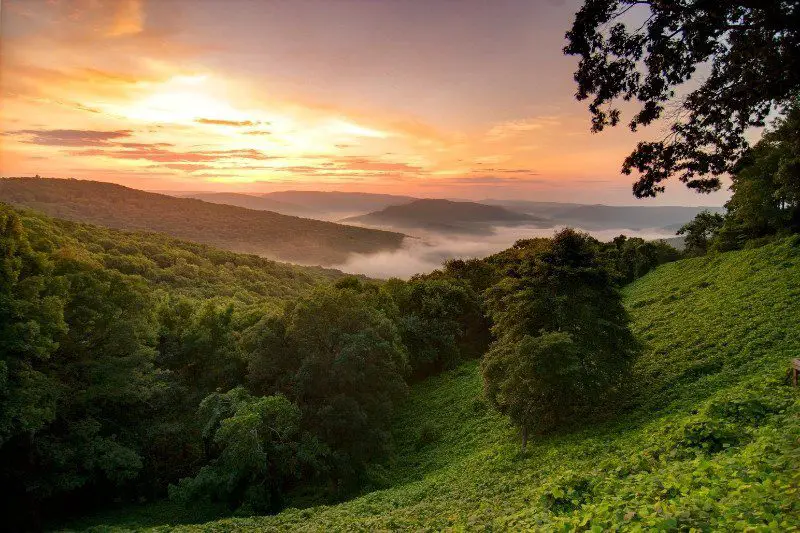
You can exempt your entire homestead in Arkansas. The land is cheap, and the cost of living is low. Additionally, the climate allows for a decent growing season for crops.
Homeschooling requirements are not overly stringent. Although, you will be required to participate in standardized testing, likewise, parents must file a notice of intention to homeschool.
9. Virginia
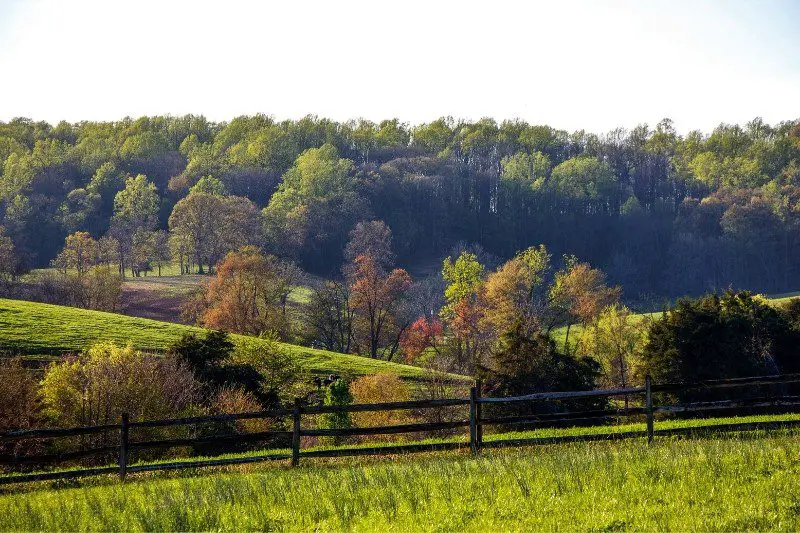
Virginia has a generous amount of rainfall yearly, which makes for fertile soil and no worries about irrigation of crops.
Homeschool requirements are relatively restrictive and include annual testing. The teaching parent must hold at least a high school diploma, children must be immunized, and more.
8. Maine
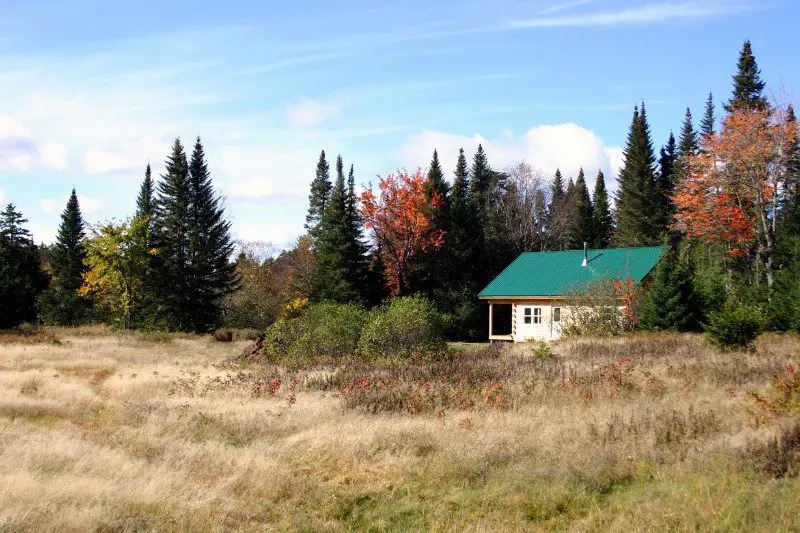
Although Maine may not immediately come to mind as a great state for homesteading, the state’s natural resources are many and property taxes are low.
Although the climate will decrease your growing season, Maine is a wonderful state to use greenhouses as a way to extend the growing season.
Maine has a large homesteading population in the northern region of the state, so you may want to begin your search there. The beauty of Maine is another definite advantage.
7. Oregon
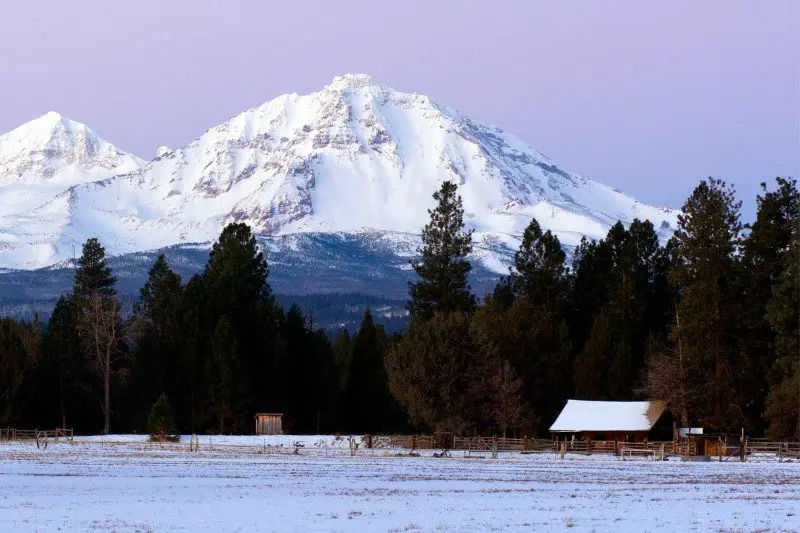
Oregon homestead law allows homesteaders to protect up to 160 acres of land, valued at up to $40,000 for an individual or $50,000 for married couples. The land is fertile, and the climate allows for the propagation of fruit orchards as well as crops.
Oregon is known for its wealth of farmers’ markets. As a result, you could work towards turning your homestead into an agricultural small business if you so desired.
In looking for your ideal homestead property, you may want to consider off-grid living possibilities. The state allows for solar power as well as wind-powered energy sources.
Oregon’s rugged beauty makes this state a likely candidate for making your homestead dreams come true.
6. Louisiana
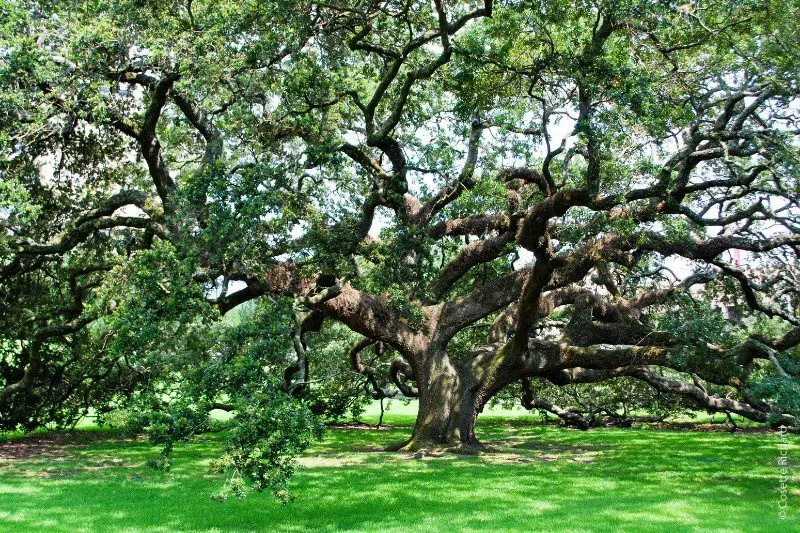
The warm climate of Louisiana makes this a great option for homesteaders. Farmland is affordable, the soil is rich and fertile, and the growing season is long.
Homeschooling laws are minimal. A huge benefit: homeschoolers are allowed to participate in public school sports.
5. North Carolina
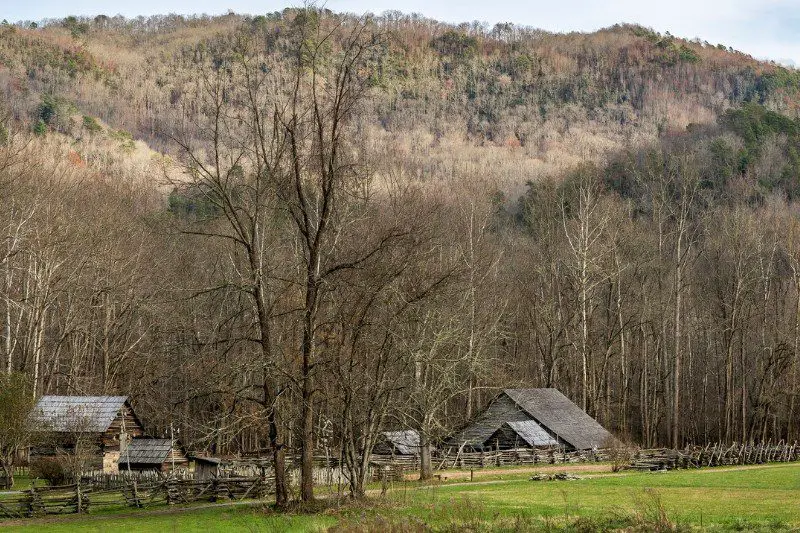
Not your typical homesteading state, North Carolina is our pick for families wishing to do urban homesteading.
Urban homesteading involves consciously incorporating self-sustaining practices into your urban lifestyle. This may include:
- maintaining a large home garden,
- beekeeping,
- home canning,
- recycling,
- keeping backyard chickens,
- composting,
- saving rainwater,
- and more.
North Carolina has a moderate climate with a long growing season, making it the ideal state to practice backyard homesteading.
4. Iowa
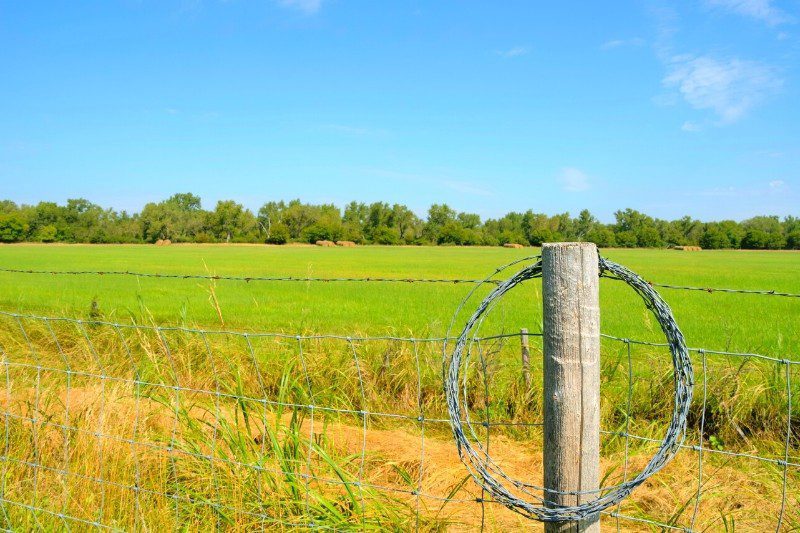
The flat terrain of Iowa provides a major benefit for homesteaders: the possibility of renewable energy through wind power.
If off-the-grid living is one of your ultimate goals, you may want to look into purchasing a homestead in Iowa. The land is fertile, allowing for the growth of a variety of crops.
There is no licensing necessary to sell produce at your area farmers’ market. This makes it quite easy to sell excess fresh produce and even fresh eggs locally.
3. Missouri
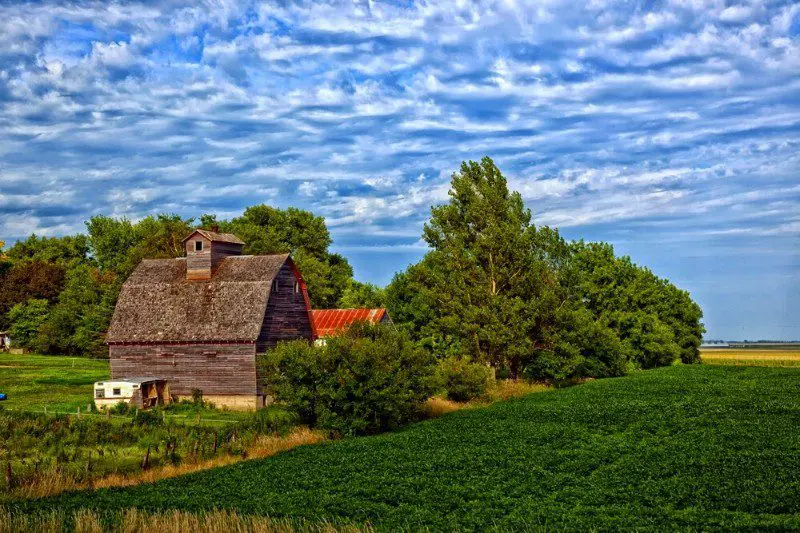
Missouri’s climate is perfectly suited for small homesteads. Natural resources are plentiful, the soil is fertile, and rainfall is adequate to irrigate crops.
The cold-weather crops you could consider growing include kale, potatoes, carrots, and peas.
Missouri has a very active state agricultural department with resources for new farms.
2. Tennessee
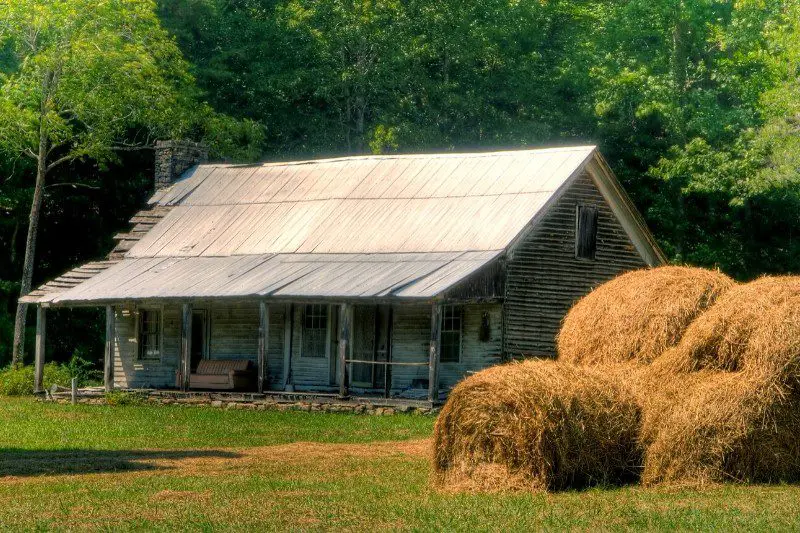
Tennessee experiences all four seasons, allowing for a long growing season throughout a major part of the state. The land is fertile, and the scenery is beautiful.
Tennessee does not have a state income tax, which is a definite benefit for homesteaders.
Throughout the state, you can find decent prices for acreage. The homesteading exemption is only $5,000 at present, but Tennessee makes up for this fact with its other benefits.
1. Idaho
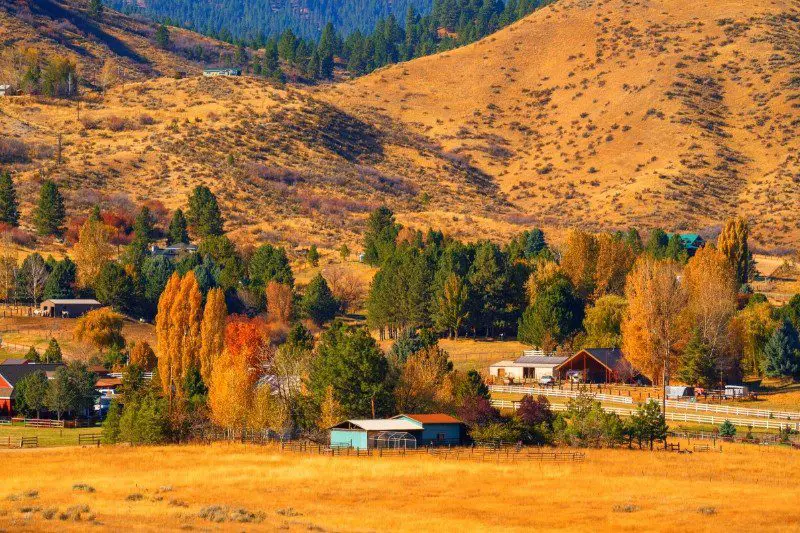
Idaho’s homesteading laws definitely benefit homesteaders, as the state protects your personal homestead if you end up in a financial crisis.
There is a generous exemption for your homestead of $100,000. However, you must file a Declaration of Homestead in order to protect your property.
The moderate climate allows for growing crops and keeping livestock. Idaho has some of the most fertile soil in the country.
Idaho’s homeschool laws allow homeschoolers to dual enroll. As a consequence, they can take public school classes and participate in extracurricular classes.
Idaho’s abundance of outdoor activities includes hiking in wilderness areas, paddle sports like kayaking and canoeing, and winter sports like skiing and snowboarding.
Before You Start Your Homestead
Make a plan. Making the decision to become a homesteader should not be entered into lightly.
Here are some questions you may want to ask yourself as you review the best states for homesteading and plan your own homestead.
Do I want to grow my own food?
This can range from a kitchen herb garden to a huge garden that produces enough produce for a year.
Do I want to raise animals?
Homesteaders are used to having plenty of animals around that can provide something to go towards sustaining the family.
Do I want to homeschool?
If you make the leap to buy a homestead, you may have to live in an area where your public school options are limited.
What is the cheapest state to homestead in?
Our pick is Tennessee, due to its lower acreage costs combined with no state property taxes.
Homesteading Should Be In Your Future
The idea of becoming totally self-reliant may be a little daunting, but most families who stick to homesteading will never go back to their former lifestyle.
Now that you’ve reviewed our list of the best states for homesteading, you may be ready to begin your search.
If you are now convinced that homesteading is in your future, you may want to check out our articles on homesteading.
We cover everything from building improvements for your homestead to keeping farm animals, preserving your food, and more!
